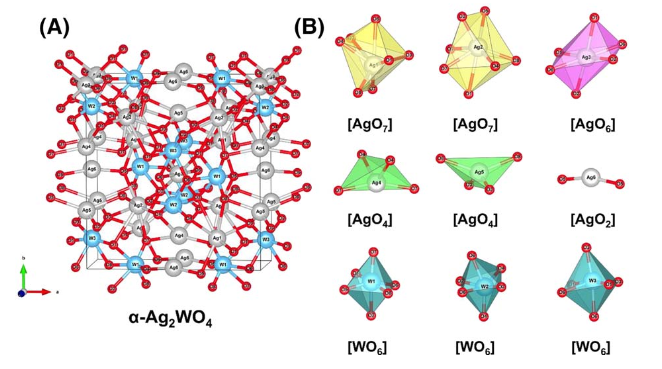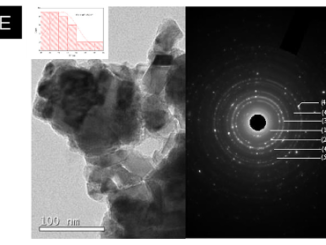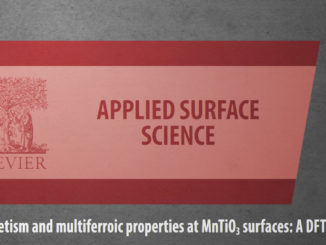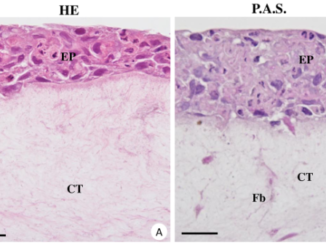
Formation of Ag nanoparticles under electron beam irradiation: Atomistic origins from first-principles calculations
Abstract: The formation of Ag nanoparticles is currently a topic subject to a great deal of research because they are excellent materials with many technological applications. Recently, the formation of Ag nanoparticles on -Ag2WO4 semiconductors induced by electron irradiation has been reported, but the mechanism underlying the transformations remains elusive. The aim of this article is to describe the mechanisms of electron beam irradiation on -Ag2WO4 and its transformation to form Ag nanoparticles in vacuum conditions. To this end, a combined study involving experiments and multiscale computational approaches (density functional theory calculations and molecular dynamics simulations) is presented. With the increasing interplay between experimental and computational approaches at multiple length scales, we will also discuss how these combined data can be used to provide a deep insight into the rationalization of electron beam-induced transformations. This phenomenon is likely to be promoted by electron charge redistribution in these materials due to electronic excitations combined with the formation of silver vacancies under electron beam irradiation. As this mechanism should be relevant to other Ag-based materials, our results provide pointers for the further development and optimization of electron beam-mediated engineering of the atomic structure and electronic properties at the atomic resolution.
Author(s): Andres, J; Gouveia, AF; Gracia, L; Longo, E; Faccin, G; da Silva, EZ; Pereira, DH; San-Miguel, MA
INTERNATIONAL JOURNAL OF QUANTUM CHEMISTRY
Volume: 118 Published: MAY 5 2018
DOI: 10.1002/qua.25551




